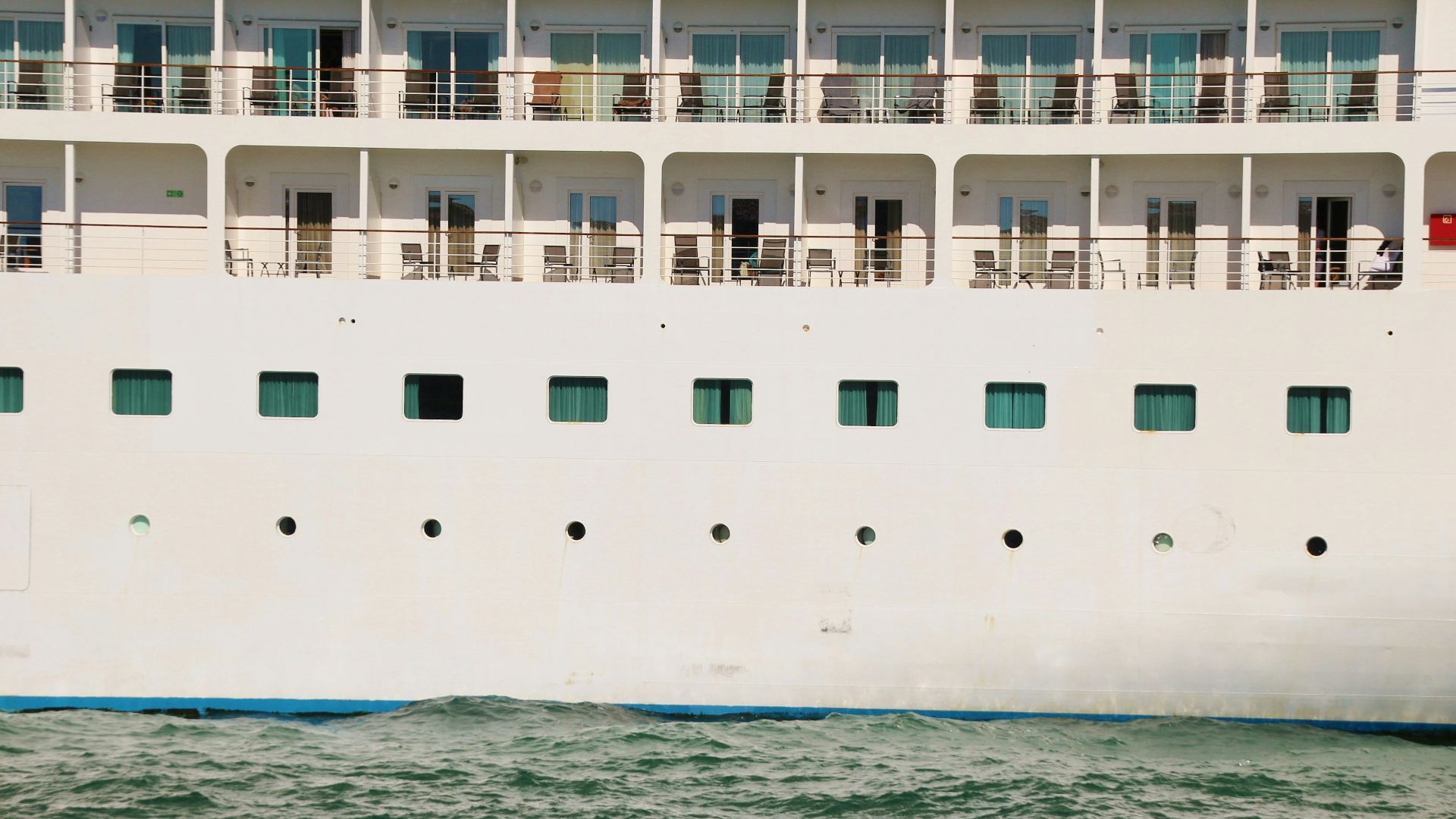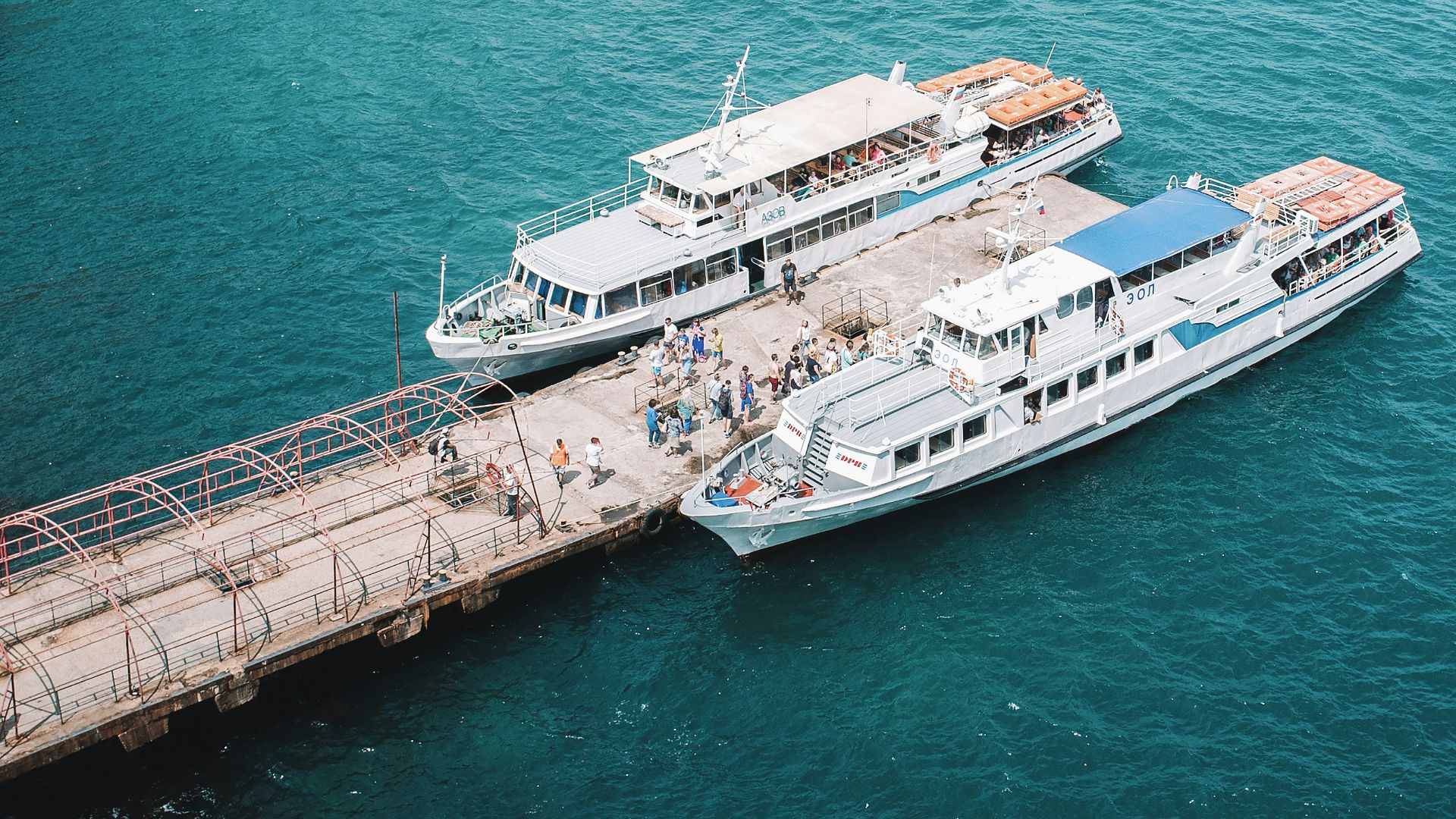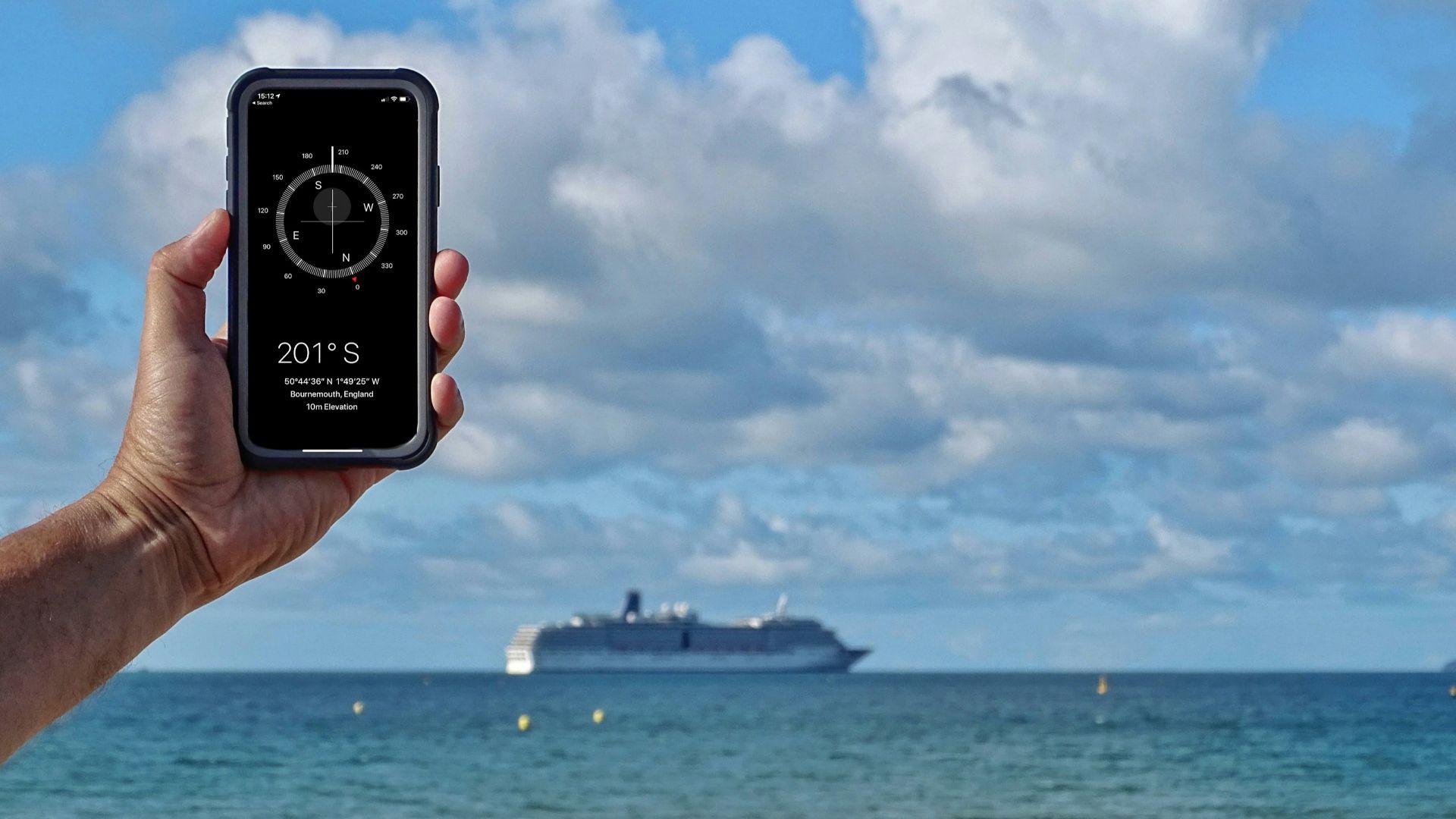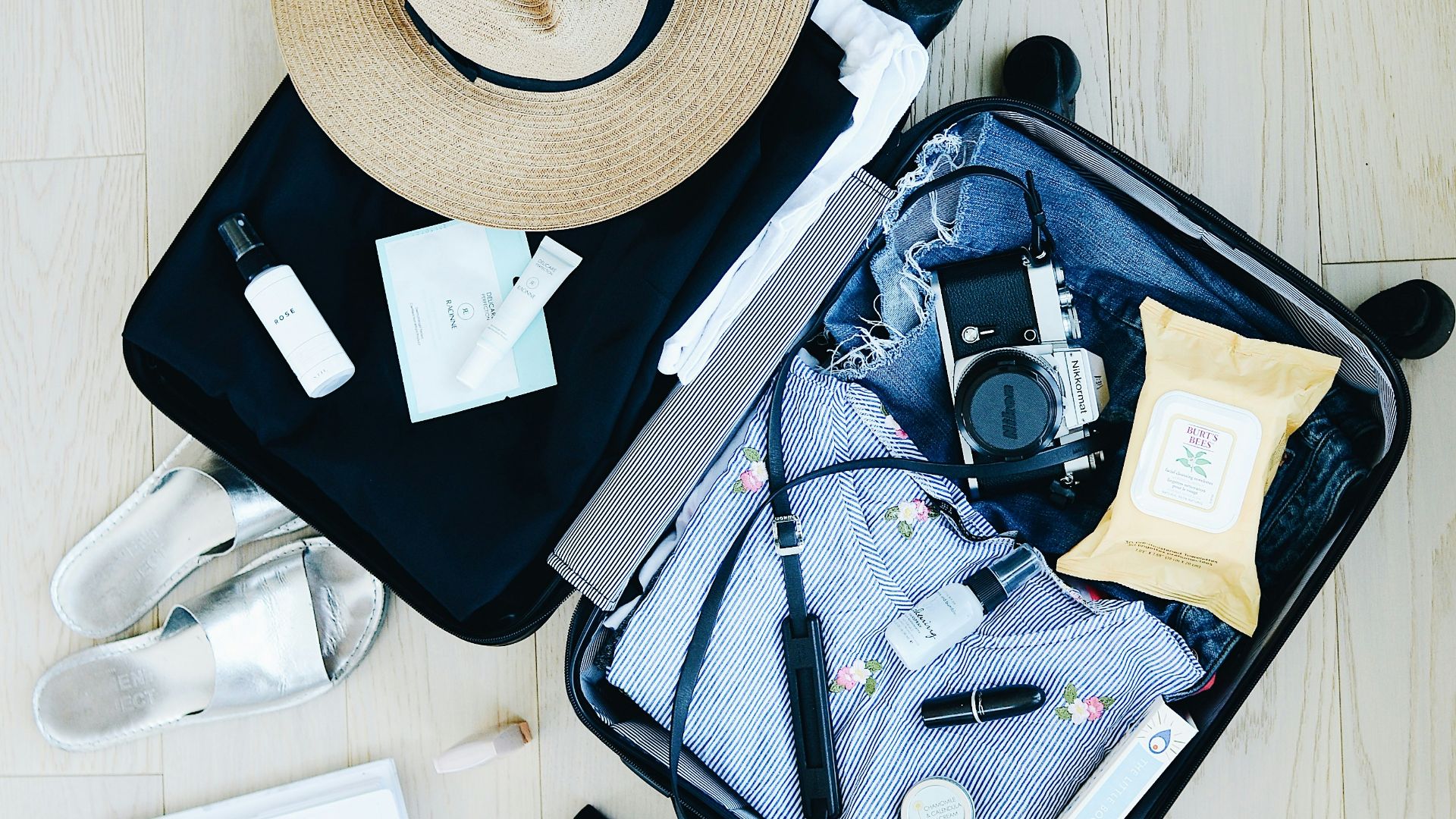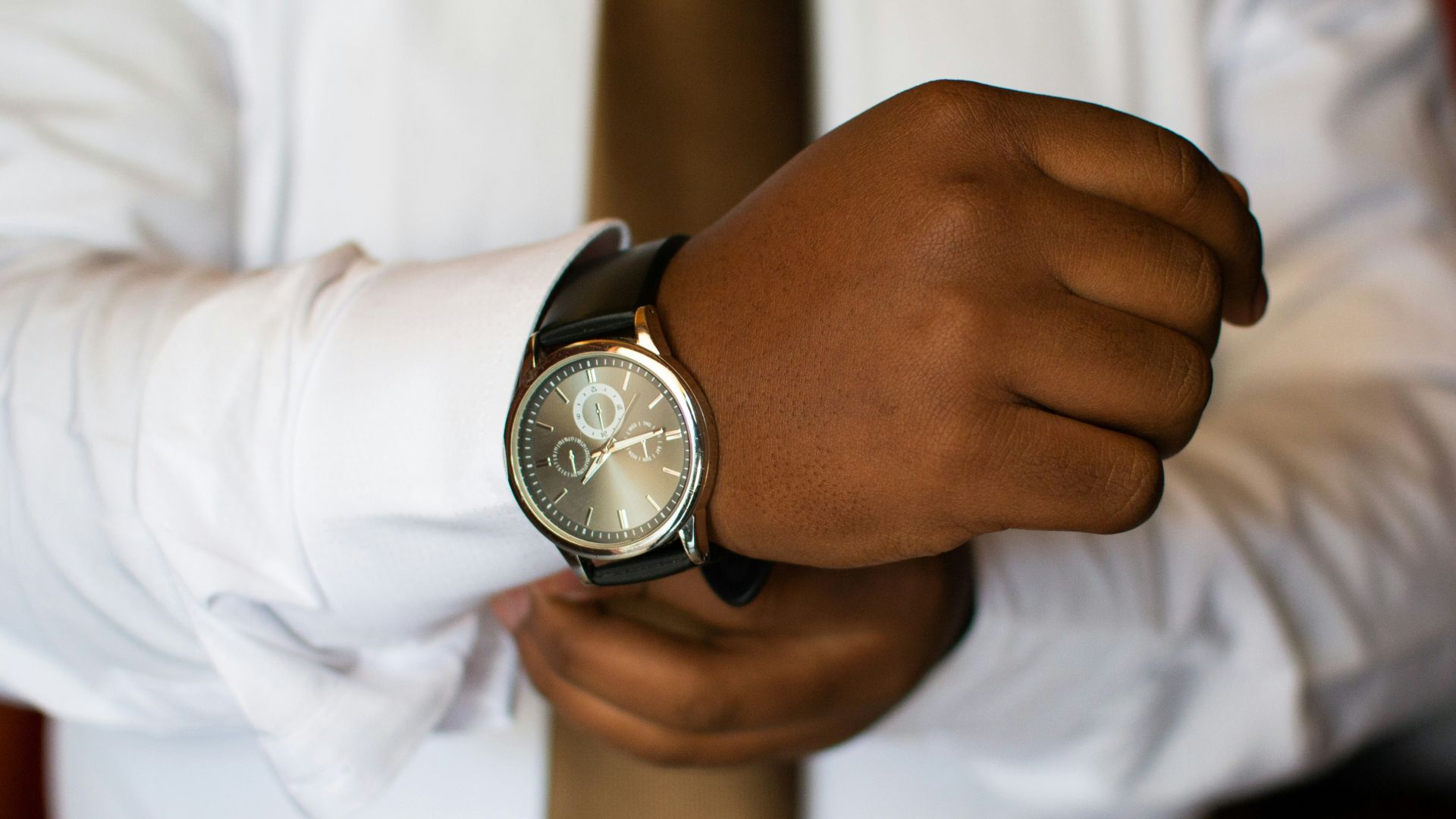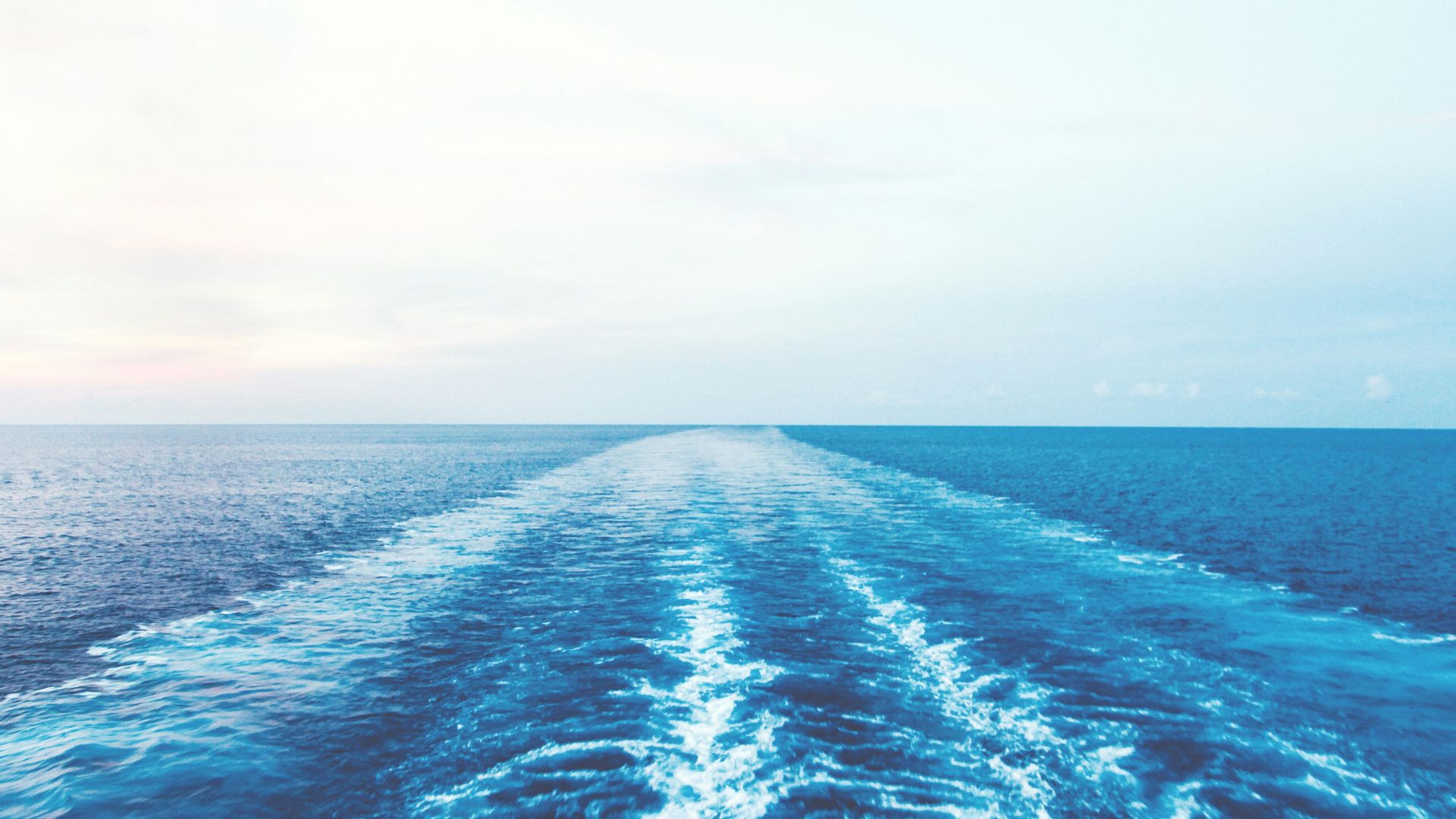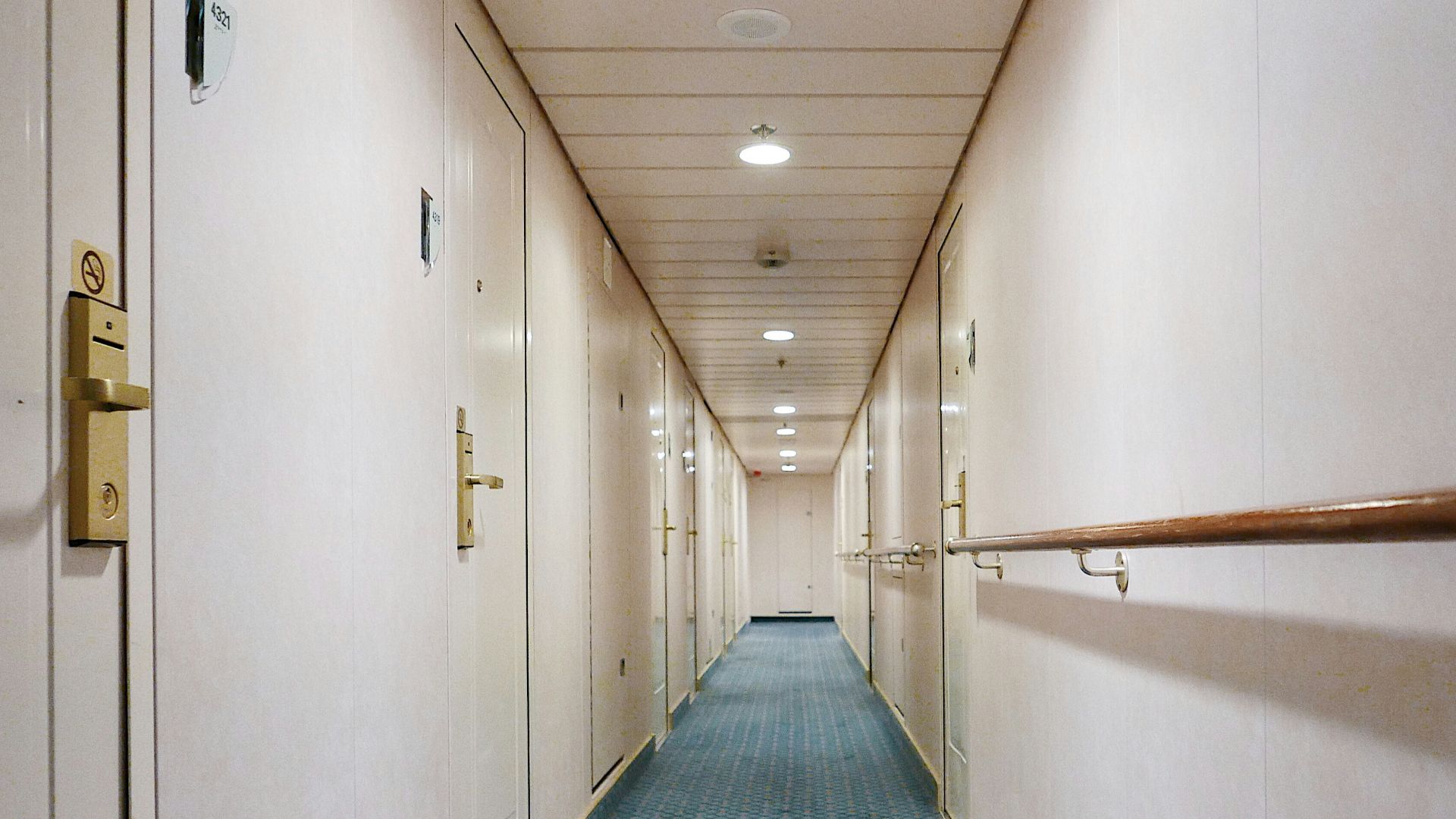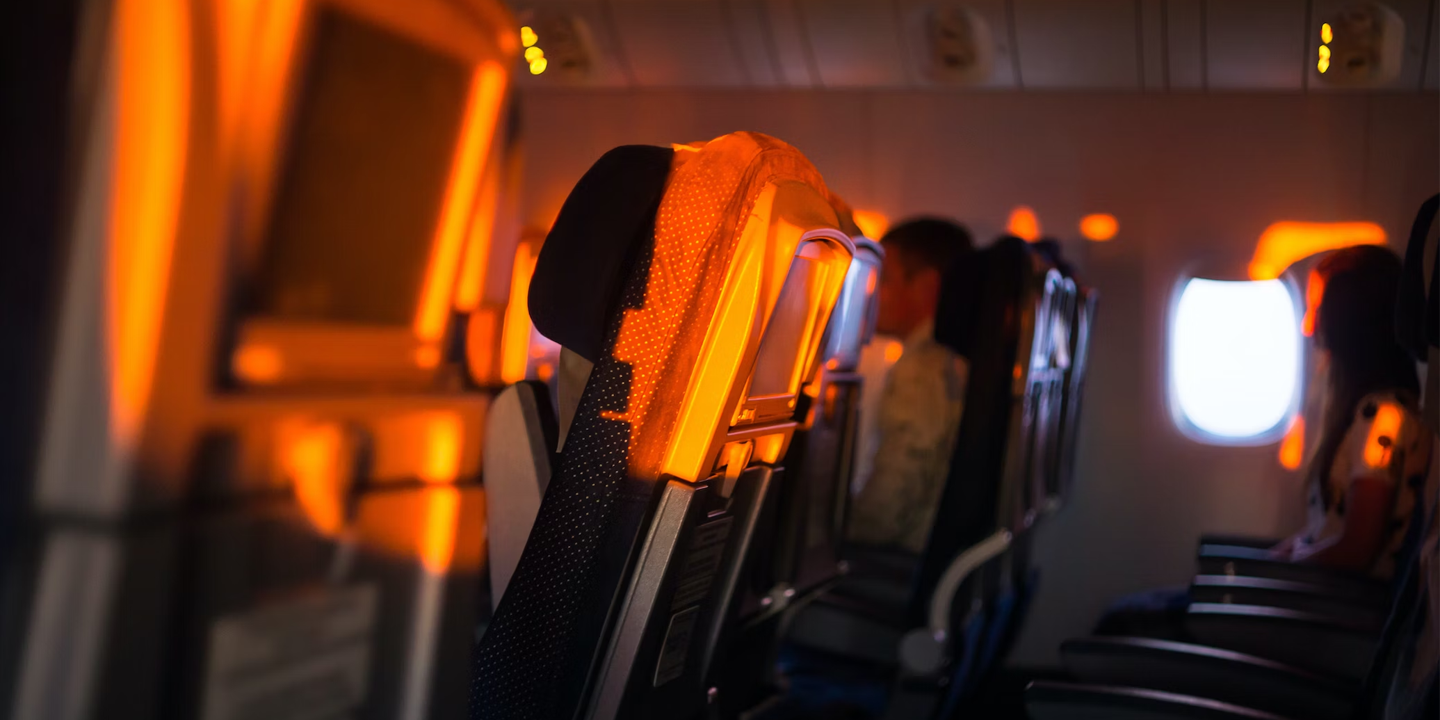Smooth Sailing for Landlubbers
Going on a cruise should be easy, right? After all, you don’t have to worry about where to eat, need only unpack once, and get all the relaxation of a resort with the gorgeous vistas of a road trip. In actuality, planning, let alone enjoying a cruise, can come with more questions and concerns than expected. But, never fear, our insider expertise will have your maiden voyage going off without a hitch.
1. Know That Solo Travelers Are Okay
Many people think of a cruise as a group activity. After all, not only are you on a ship with a bunch of strangers, but many people enjoy cruises with their friends, families, or significant others. That doesn’t mean that solo travelers are unheard of. Solo travel gives you quiet time to recharge your social battery and complete freedom to make your own decisions rather than mediate for others.
 Jaishree hotchandani on Unsplash
Jaishree hotchandani on Unsplash
2. Choose a Medium-Sized Ship
We were also obsessed with the Titanic in childhood, but bigger doesn’t always mean better. With megaships approaching the status of floating cities, it can be tempting to go all out and splurge on the biggest ship. However, the size can be disorienting and crowded, leaving you feeling like one of the poor souls in Third Class rather than the hoity-toity in First.
3. Keep a Photocopy of Your Passport
Chances are that nothing will happen to your passport or other identification, but it's always a good idea to keep a photocopy of your documents on hand. This way, you can lock your physical passport in your cabin and take a copy with you to port.
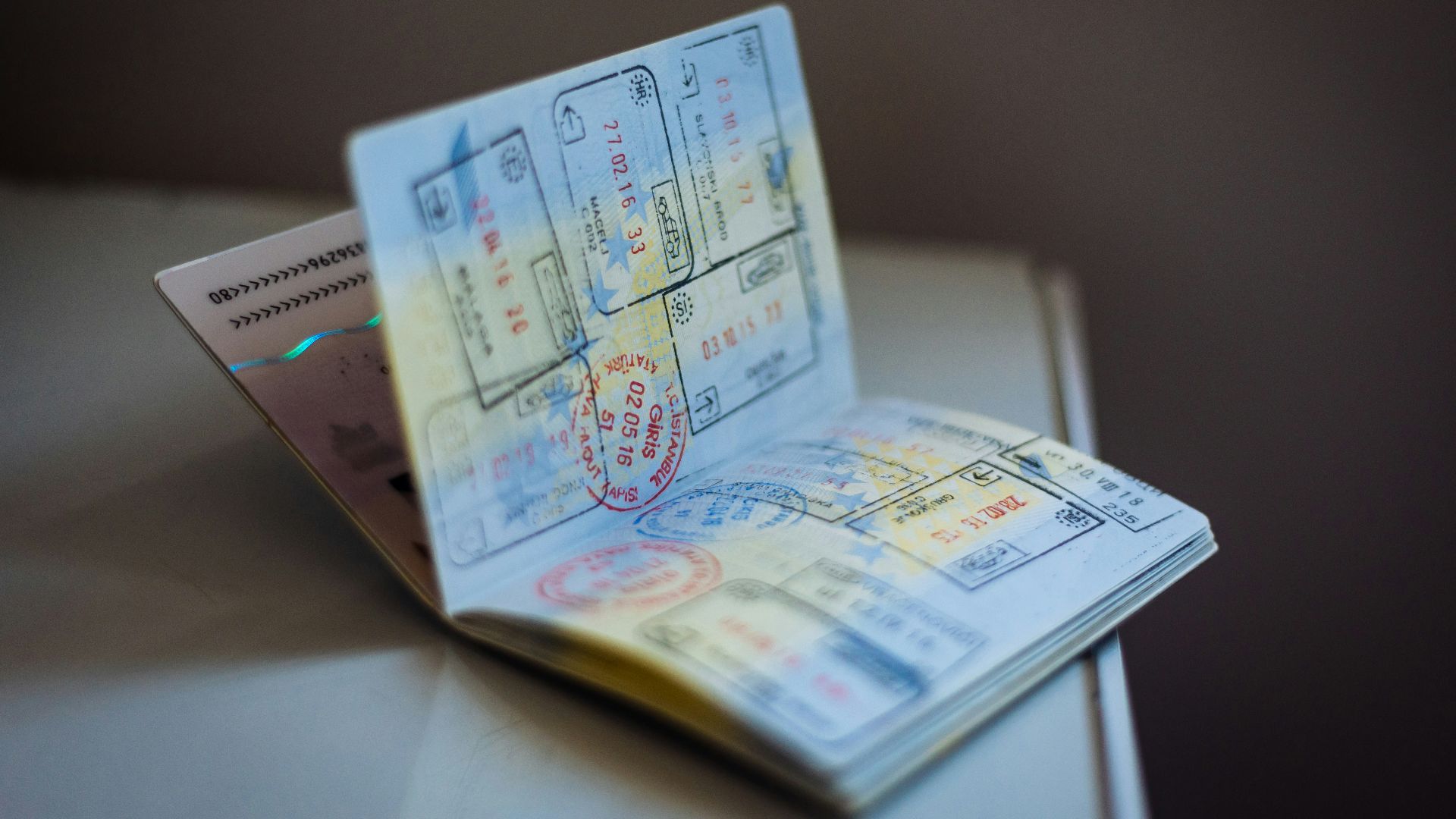 Global Residence Index on Unsplash
Global Residence Index on Unsplash
4. Read the Small Print
This goes for anything from cancellation fees to bar tips (they’re often included in the bill already). If you want to tip your bartender twice for excellent service, then we won't stop you, but watch out that you don’t get caught paying exorbitant fees for things like add-ons and cancellations.
5. Research Ports in Advance
We hope you already did this during booking. You certainly don’t have to disembark at every port, especially if you aren’t feeling well, but make sure you don’t miss out on opportunities. Whether you attend a guided tour, do some shopping, or explore at your own pace, every port offers something different.
6. Book Excursions While You Can
Speaking of shore excursions, the last thing you want is to show up for an excursion you were looking forward to, only for it to be fully booked. Remember that you can always cancel an activity if you have to, but you can’t expect there to be an open spot at the last minute.
7. Arrive at Your Embarkation Point a Day Early
One thing about maritime law is that the ship will leave without you. Most cruises depart in the afternoon, but we advise arriving early to ensure you have a safety net in the event of complications such as flight delays. If you’re traveling overseas, you may even want to arrive a few days early to avoid jet lag.
8. Don’t Skip the Pre-Check
Like airlines, many cruise ships offer a pre-check option. Save your time and energy with a click by confirming your boarding 24 hours in advance. No need to waste your time or needlessly stress.
9. Board the Ship Early
If there’s one piece of advice you should take from this article, it’s that the early bird truly gets the worm. The earlier you board the ship, the earlier you’ll be able to take advantage of all the ship has to offer. That way, you can start your vacation early with a poolside mimosa while other passengers are still wrangling their luggage.
10. Keep Important Stuff in Your Carry-On
Unlike a hotel, your luggage will arrive in your room before you do. Even though you won’t be able to check into your room first thing, you can still enjoy the pools, restaurants and other amenities. Pack your swimsuit, electronics and chargers, and anything else you’d rather have in a separate bag that will stay with you for the first hours.
11. Look Into Drink Packages
Cruise lines offer different drink packages to fit your needs. All-inclusive packages may or may not include alcohol, for example. Choosing a simpler drink package is an easy way to save money by only buying drinks when you really want them, rather than making them feel like an obligation.
12. Check For Dress Codes and Theme Nights
The three standard dress codes are: casual (shorts and a t-shirt), smart casual (collared shirts and sundresses), and formal (evening wear). Most cruises rotate between these three for different events. If an event calls for a tie and jacket, you don’t want to be turned away for rocking up in flip-flops and sunglasses. There could also be theme nights based on certain colors or decades, such as White Night or 80s Night.
13. Don’t Bring Too Many Dressy Clothes
Everyone wants to be stylish, but don’t let your formalwear take up too much space in your luggage. Unless you’re by the pool all day or have a fancy dinner scheduled, you shouldn’t have to change for meals. Nobody will notice if you recycle outfits, but they will notice if you roll up to shuffleboard in a three-piece.
14. Wear Layers to Dinner
On average, it takes about four times as much energy to heat water as it does air. Practically, this translates to about 5-10° of difference between land and sea. This may not seem like a lot, but on open water without wind buffers, and especially after the sun goes down, you’re liable to catch a chill even in the height of summer. So, bring a light sweater or jacket with you to dinner in case you need it.
15. Try New Foods
Not only do you avoid the hassle of cooking on board, but you also have the opportunity to try items and cuisines you may not typically be exposed to. Food service varies from ship to ship, from sit-down dinners to buffet-style breakfasts and a combination of the two. Take advantage of the variety and step out of your culinary comfort zone.
16. Pack Your Own Snacks
Like the siren song of the overpriced hotel minibar, snacks and small bites such as chips, candy, and popcorn can be subject to enormous upcharges. Rather than paying a premium for a tiny bag of pretzels, include a stash of your fave snacks to save money and enjoy freedom of choice.
17. Pack Dramamine
Trust us, you don’t want to be seasick. Even if you don’t think you’ll be sick, pack Dramamine and other anti-nauseants for a worst-case scenario. On-board pharmacy prices are misery-inducing by themselves, and it never hurts to help a fellow passenger in need.
18. Keep Your Eye on the Horizon
Experienced sailors will tell you that this is more than an empty platitude. In case you do get seasick, fresh air and staying calm will help you crest the roughest waves. Help your equilibrium reset by standing on the deck and finding a point on the horizon to look at—just be sure not to wave-watch as the motion can make you queasier.
19. Don’t Burn Out
With so many options and entertainment to choose from, especially on your first voyage, you can feel like you’re missing out by not taking full advantage of the amenities. But, you’re on vacation after all! A jam-packed itinerary may be perfect for some people but cause overstimulation for others. Take things at your own pace.
20. Be Wary of Mal de Debarquement Syndrome
This is a fancy name for feeling like you’re moving even when you’ve stopped. Once you’ve gotten your sea legs, you may find them hard to forget. Some dizziness, swaying, and disorientation can persist after you’re back on dry land. MdDS normally goes away within 24 hours; if it persists longer than two days, schedule an appointment with an ENT doctor.



